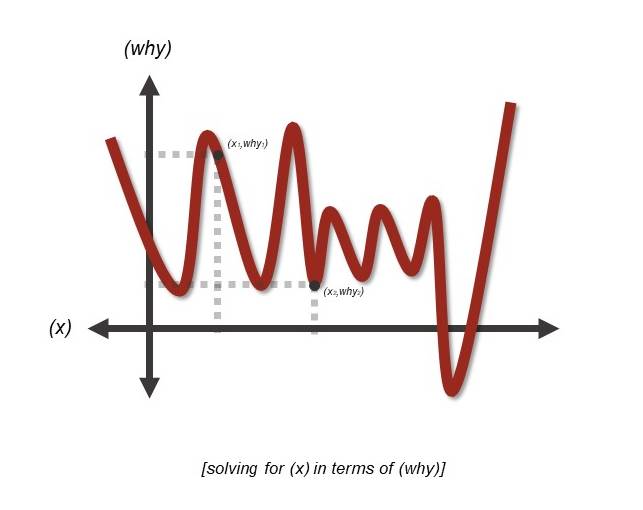Intro
What is eXplore

eXplore is a program designed to assist exploring/deciding students in choosing their best-fit college major. The program aims to assist exploring students in making their major decisions over two consecutive semesters.
Students in similar programs are provided with a series of steps or a list of resources that can aid them in finding their future major. In eXplore, students are taught how to use their resources critically, analytically and strategically in order to graduate on time.
The university welcomes exploration students from a variety of backgrounds. Higher education serves a variety of purposes and intentions. Some are exploring because they are interested in more than one area of study.
Others are returning or non-traditional students who are exploring options that would allow them to graduate with a degree that would help them in their professional life.
Exploration is also common among students who already belong to a major on campus. These decided students might eXplore because they are looking for either a minor or a second major.
Decided students may also explore if they are unsure about their current major. In order to assist such a diverse population, a program should be more sophisticated than a to-do list. It should be more engaging than a list of referrals to websites or offices on campus. And above all, it should be educational
Who is the Exploring Student?

1.) A student may be first labeled as exploratory if they are deciding or investigating.
The term "exploratory" is best suitable for college-bound kids who are considering majoring in a number of academic fields and colleges.
Students can use eXplore to research the majors that are best for them by matching their values, interests, talents, and abilities.
Students with an exploratory status are allowed to choose the academic majors that best suit them while still making progress toward a degree.
2.) Students who want to apply to a pharmacy, dental school, medical school, nursing school, or any of the other full range of health career professional schools may benefit from having an exploratory status (e.g., physical therapy, physician assistant). These students should review the TTU catalog's Pre-Professional Health Programs and get the proper advice as advised.
3) Students who are only considering majors that are offered by one single academic college should speak with advisors there.
4) Students interested in pre-veterinary medicine may consult the TTU catalog's Pre-Veterinary Medicine section and consult with the College of Agricultural Sciences & Natural Resources for guidance.
Solving for (X) in Terms of (why)!
The foundation of eXplore is the mathematical idea of attempting to ascertain the link between two variables (X and Y). We think that if (X) and (Y) are related, if (X) is an examined major, and if (Y) is the reason why this major is a good fit, then one may track the changes in the value of (X) every time (Y) or (why) changes, and vice versa. This is similar to how it works in mathematics.
Instead of attempting to find a straight line or predetermined route from (why) to (X), such an approach should reflect complexity as it takes levels of relationships between (X) and (why) into consideration (X).
In other words, this strategy will let the prospective student consider all the factors equally before deciding on a major rather than taking a single line of inquiry that might or might not be appropriate in all circumstances.
This method of picking a major should also allow the exploring student to consider a variety of major alternatives simultaneously rather than forcing them to choose a major while they are still debating.
Common Misconceptions Concerning Majors and the Exploring Student:
Exploring Students that are less prepared for college, are more prone to be “at risk students” and are going to take longer to graduate than their decided peers.
In fact, there is no research that links exploring students to poor academic performance.
At Texas Tech University, advisors at University Advising (UA) strive to help students build a well-rounded and educational academic plan during their exploratory semesters, which will provide a sense of purpose, achievement, and connectedness with the institution.
Our advisors collaborate with exploring students to find the best-fit degree in an efficient and timely manner. Both research and experience in the academic advising field have shown that students who receive professional support and assistance in selecting a major are just as likely as their peers to graduate in a timely manner.*
* Pargett, Kelly K., "The Effects of Academic Advising on College Student Development in Higher Education" (2011). Educational Administration: Theses, Dissertations, and Student Research. 81. http://digitalcommons.unl.edu/cehsedaddiss/81
Students should get all their Core Curriculum (General/Basic) requirements out of the way first, and then they can decide on a major or a degree.
This is simply unadvisable because certain majors require specific core classes. For example, a student takes a music class for his or her core Creative Arts requirement in their first exploratory semester. Two semesters later, that student ends up choosing a major that requires an Art History course to fulfill that same area. This means that the student now is going to have to add an extra course to their degree plan. This can be avoided with professional and trained advising. At Texas Tech, UA advisors assist students in navigating the core curriculum strategically in order to make sure, as much as possible, that all the courses selected are either required for a future major or can count as an elective course in their future degree plan.
Arts & Humanities or Liberal Arts majors are unemployable, (the “starving artist” misconception)
It is true that some art students struggle to find work after school, but so do students in every other discipline, from philosophy to communications to business. The “starving artist” misconception, which believes that liberal arts graduates are unemployable ignores the reality of today’s economy, where jobs require a mixture of skills not easily packaged in a single college major. The skills and competencies that Liberal Arts majors emphasize, such as writing, synthesis, creative thinking and problem solving, are sought after by current employers. In addition, a recent study (Burning Glass Technologies) that analyzed job-market trends concluded that if liberal arts graduates gain proficiency in some technical skills, such as social media or data analysis, their prospects of landing entry-level jobs increase substantially. Students who major in theater, anthropology, history, psychology, and similar majors do find jobs in business, research, human resources, teaching, the military, and a variety of other occupations.
Choosing one major means giving up all the others.
Texas Tech University offers its students opportunities to combine interests in more than one major or area of study. It's possible, for example, for students to complete a double major (two majors from the same college) or end up graduating with a dual degree (two majors from two different colleges).
Another way to combine interests in several different areas is through
degree-programs such as University Studies.
(A comprehensive list of TTU minors can be found in the Major/Minor chapter)
https://www.depts.ttu.edu/universitystudies/
Students can wait until their junior year to figure out their major
At TTUA we believe that academic and career planning cannot be a passive activity. It takes time and effort to think through the process of choosing a major. The student must take action with full autonomy, and we are always available for assistance and guidance. Taking advantage of our resources and services can make the search for a major a more educational, rational, manageable, and even enjoyable process. After all, the quicker a student has found an academic home, the quicker they feel connected to their campus.
Once you decide your major, you're stuck with it.
It's never too late to pursue your passion. Even if you decide in your junior or senior year that you want to do something different than your chosen major, your academic advisor should be able to work with you to craft a reasonable and acceptable plan to get there.
In addition, very often, a current major can become a minor or concentration, making the most of completed credits.
Picking a major and a career are the same thing.
Choosing a major and choosing a career are two different activities. Although they are related, choosing a major doesn't limit you to just one career; and choosing a career doesn't limit you to just one major.
Consider these examples:
- Students who decide they want to be a lawyer may choose any major and still be accepted into law school.
- Similarly, students who decide they want to be medical doctors can major in many different areas and still qualify for medical school, as long as they take the right courses, do well on the medical college admission test, etc.
- Students graduating from any one major could be employed in many different jobs; likewise, people who are employed in any one job could have graduated from many different majors. An English graduate can work as a news editor, a writer for an advertising company or an ESL teacher, for example.
Furthermore, a position as an Assistant Curator in a museum can be filled by a history, an art history or an archaeology major.
- Many current jobs will be very different five years from now. New jobs are emerging every year, and with them, new skills, new knowledge, and new experiences.
- Career planning at the undergraduate level in most universities today focuses on the development of general, transferable skills (e.g., writing, speaking, critical thinking, computer literacy, problem solving, team building) that employers look for, and that graduates will need in order to adjust to rapidly changing careers.
How Does eXplore Work?
In order to achieve the goal of connecting the exploring students to their future major within two semesters, UA advisors will always try to do the following:
1) Work with the exploring student simultaneously on at least two possible majors, preferably majors with different sets of transfer requirements.
At TTUA, we believe that successful exploration requires understanding of all transfer prerequisites, including coursework and GPA. We encourage students who are exploring competitive majors (health careers, engineering or business) to also explore related majors with less competitive requirements. This way, students can move forward with a plan towards graduation regardless of the outcome of the competitive application processes.
2) Aid the exploring student in finding courses that apply to all their explored majors.
The success of this strategy depends on the number of courses the exploring student has completed, and the majors that the exploring student finds interesting.
However, what makes such a plan possible is:
a) certain courses are required for all majors on campus
b) several majors require similar courses, and
c) many courses are required for a certain major but will count as an elective for another.
The goal is to give the student two semesters’ worth of coursework that won’t be lost no matter what option they decide.
3) Helping the exploring student in the process of weighing their options at the end of each exploratory activity they complete.
The program is designed so that by the end of each one of the six activities, students will be able to look at the pros and cons for each of the explored majors.
For instance, for a student who is exploring marketing and advertising, the determining factor in favoring one over the other might be:
- the fact that marketing relies heavily on mathematics, while advertising focuses on styles of communication and persuasion.
- that marketing requires a 2.75 GPA but for advertising it is 2.0
- or that the student's completed credit hours apply to one of those majors more than the other.
The activities are chosen and prioritized based on the needs of each exploring student.
After completing the activities that address the students’ concerns, they should have a clear vision on why a certain major is the most suitable major for them.
University Advising
-
Address
Texas Tech University, 347 Drane Hall, Box 41038, Lubbock, TX, 79409-1038 -
Phone
806.742.2189 -
Email
advising@ttu.edu









